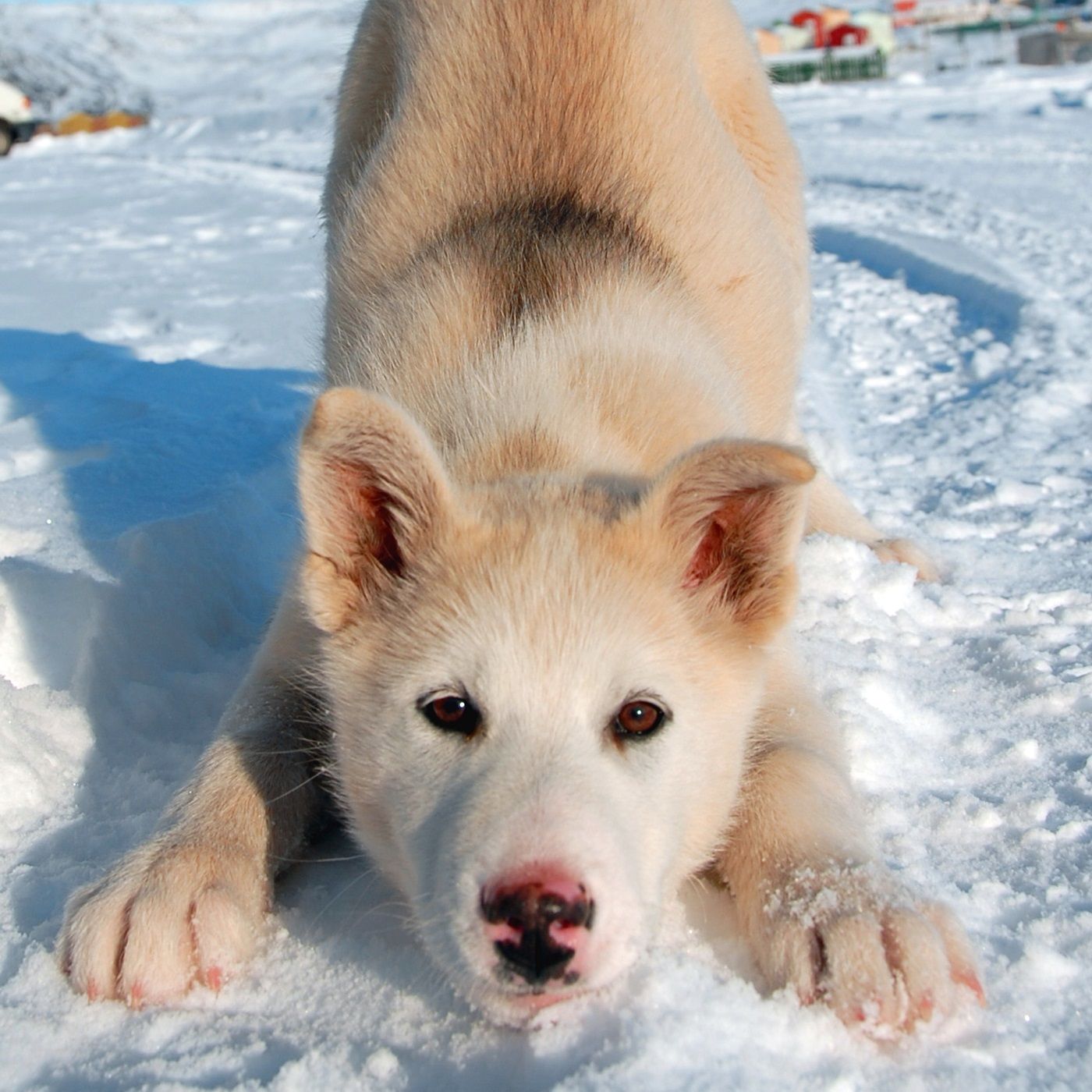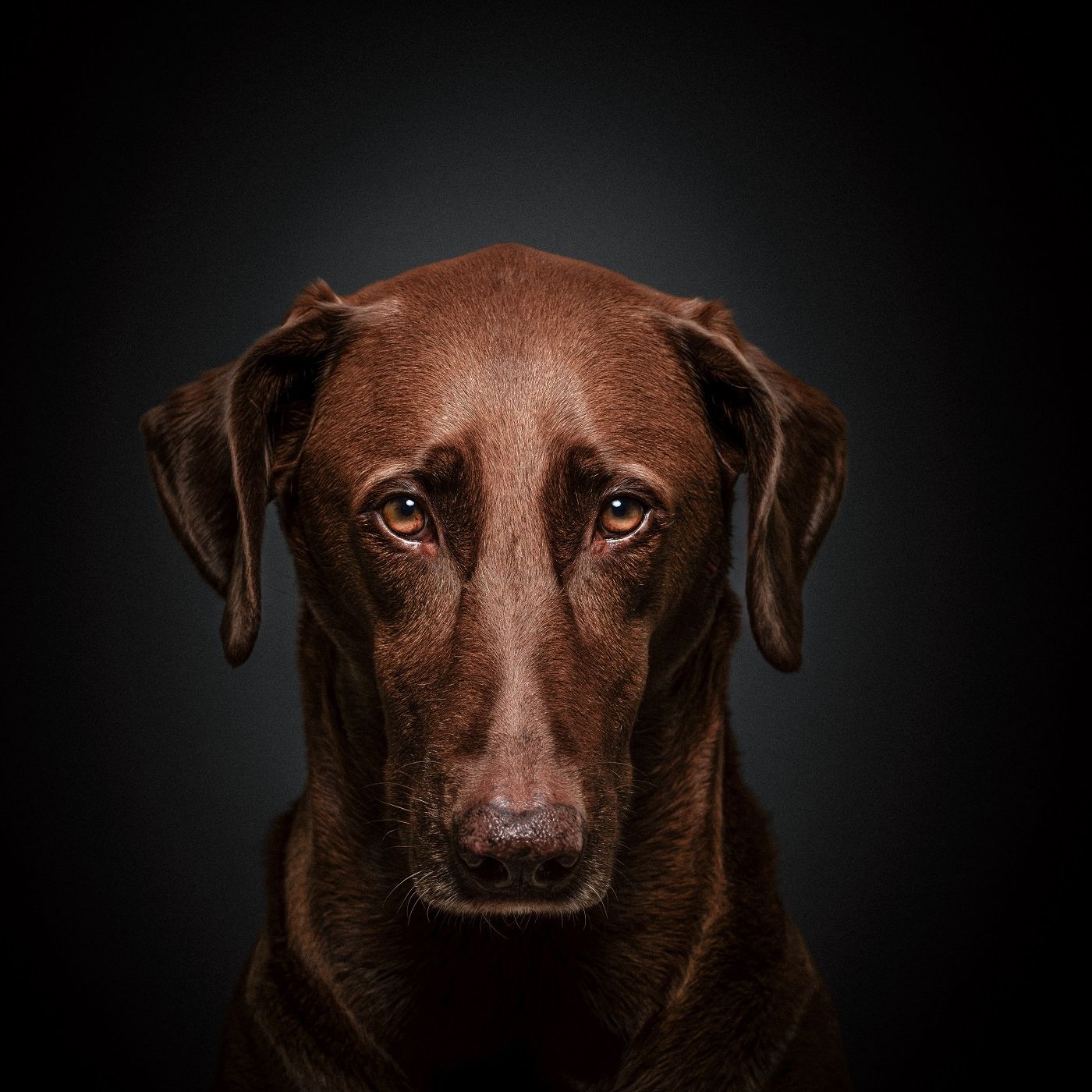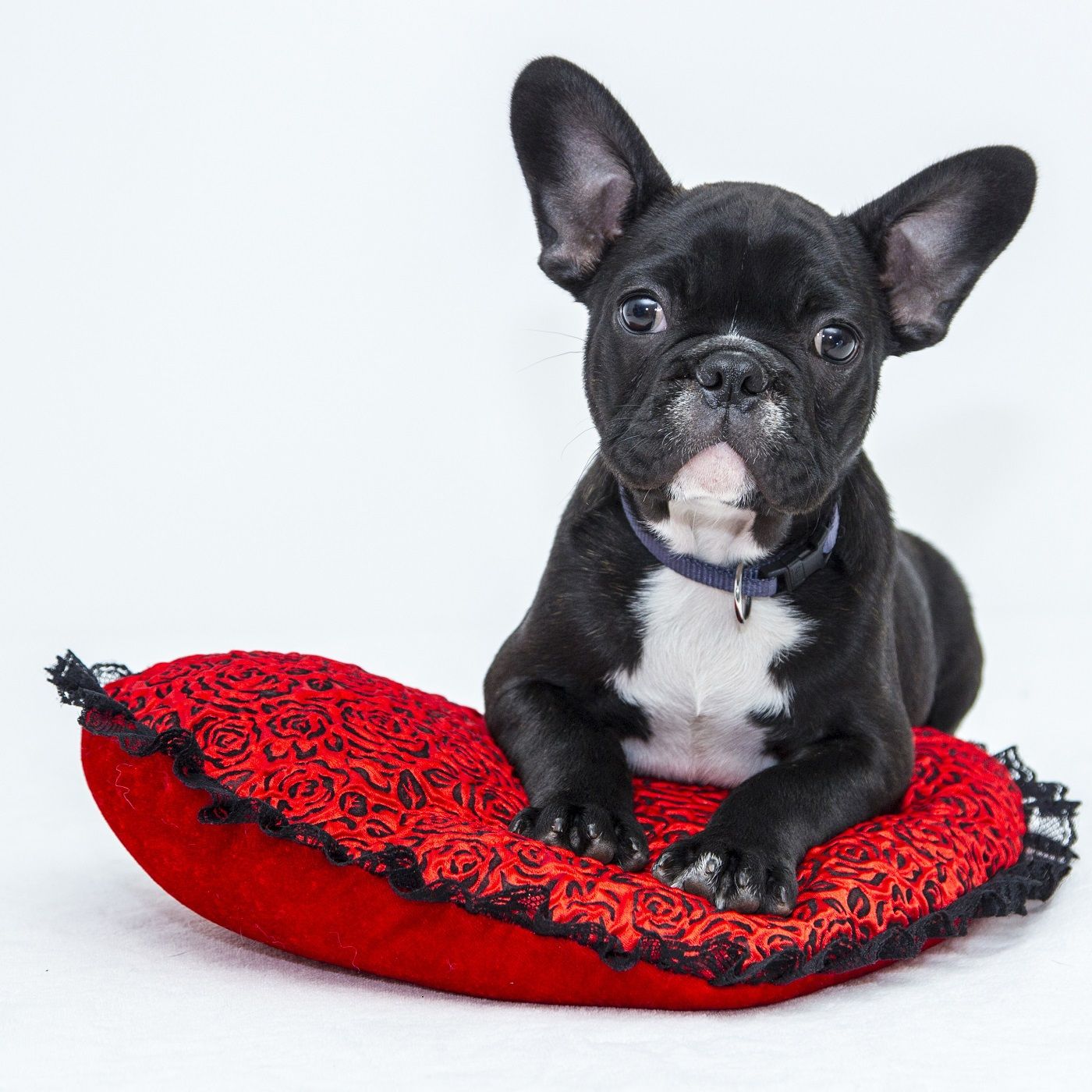Discover Happy dogs, even happier owners
Happy dogs, even happier owners

Happy dogs, even happier owners
Author: Sergio Suárez Benítez
Subscribed: 1Played: 3Subscribe
Share
© Sergio Suárez Benítez
Description
Everything you need to know about caring for your dog and more. Happy dogs, even happier owners.
Listen to our podcasts and discover how to improve health and coexistence with your pet.
Become a supporter of this podcast: https://www.spreaker.com/podcast/happy-dogs-even-happier-owners--5812120/support.
Listen to our podcasts and discover how to improve health and coexistence with your pet.
Become a supporter of this podcast: https://www.spreaker.com/podcast/happy-dogs-even-happier-owners--5812120/support.
169 Episodes
Reverse
Greenies as a Digestive DelightWhen it comes to treating dogs with sensitive stomachs, Greenies emerge as a potential solution offering more than just dental benefits. This concise guide explores the elements, advantages, and key considerations for pet owners considering Greenies for their four-legged companions.Greenies UnpackedGreenies, renowned dental chews, are meticulously crafted to elevate canine oral hygiene. Their unique texture facilitates teeth cleaning, reducing plaque and preventing tartar accumulation. Tailored to various breeds, Greenies ensure a comfortable chewing experience for dogs of all sizes.Ingredients in FocusFor dogs prone to stomach sensitivities, ingredient awareness is paramount. Greenies incorporate wheat, corn, and soy proteins, which may trigger allergies. However, the brand caters to sensitive stomachs with grain-free alternatives, substituting chickpeas and potatoes. Furthermore, Greenies infuse their treats with essential vitamins and minerals for comprehensive health support.Advantages for DogsOral Wellness ImpactGreenies excel in dental care, combatting plaque and tartar to promote healthier gums and teeth. This is particularly significant for dogs with sensitive stomachs, as dental issues can influence digestive comfort.Gentle DigestionWhile individual responses may vary, many dogs find Greenies easily digestible. Opting for grain-free options addresses concerns related to wheat, corn, or soy sensitivities, making these treats a palatable choice for sensitive stomachs.Become a supporter of this podcast: https://www.spreaker.com/podcast/happy-dogs-even-happier-owners--5812120/support.
Unraveling the Harmonies of Canine Hearing: Exploring the Mechanics of Dog Auditory Systems.Dogs, famed for their acute senses, traverse the world guided by an auditory system finely tuned to capture a diverse array of sounds, often imperceptible to the human ear. Delving into the intricacies of how a dog's auditory system operates unveils the extraordinary complexity and precision with which they decode their sonic surroundings.The architecture of a dog's ear lays the groundwork for their remarkable auditory abilities. Consisting of the outer ear, middle ear, and inner ear, each component plays a specific role in capturing, amplifying, and processing sound. The pinna, or external ear, serves as a conduit for sound waves, directing them into the ear canal. As these sound waves progress inward, the middle ear amplifies the vibrations, while the inner ear transforms them into electrical signals for interpretation by the brain.A standout feature of a dog's auditory prowess is their expansive hearing frequency range. While humans typically discern sounds between 20 Hz and 20,000 Hz, dogs can detect frequencies as elevated as 65,000 Hz. This heightened sensitivity enables them to perceive high-pitched sounds, such as the gentle rustle of leaves, the patter of diminutive paws, or even the faint jingling of keys.The ability to localize sounds stands as another captivating facet of a dog's auditory system. Dogs adeptly pinpoint the origin of a sound due to their mobile ears and a process known as binaural hearing. By comparing the time it takes for a sound to reach each ear, dogs precisely determine the direction of the sound. This skill, finely tuned through evolution for survival in the wild, empowers dogs to react swiftly to potential threats or adeptly track prey.Moving beyond survival instincts, a dog's acute hearing serves a pivotal role in communication. Canines communicate through a repertoire of vocalizations, each conveying distinct messages. From amicable barks to cautionary growls, a dog's capacity to discern these subtleties enhances their social interactions with both humans and fellow canines.Nevertheless, the heightened auditory sensitivity that distinguishes dogs can also manifest as noise sensitivity. Many dogs are susceptible to stress or anxiety triggered by loud or sudden noises, such as thunderstorms or fireworks. Recognizing and addressing these sensitivities is paramount to creating a supportive and tranquil environment for our beloved four-legged companions.In conclusion, the auditory system in dogs is a testament to the intricacies of nature's design. Their capacity to perceive a broad spectrum of frequencies, accurately localize sounds, and communicate effectively through vocalizations highlights the versatility of their auditory capabilities. As we deepen our comprehension of how the canine auditory system functions, we gain profound insights into the rich sensory realm experienced by our furry companions, fostering a stronger connection between humans and dogs.Become a supporter of this podcast: https://www.spreaker.com/podcast/happy-dogs-even-happier-owners--5812120/support.
Argentina Dogo Dogs: A Majestic Lineage with a Wealthy LegacyThe Argentine Dogo, also recognized as the Dogo Argentino, stands as a regal and potent breed originating in Argentina during the early 20th century.Crafted by Doctor Antonio Nores Martinez and his sibling Agustin, these canines were initially cultivated for large-game hunting but have since transformed into adaptable and faithful companions.With their unique visage, extraordinary athleticism, and steadfast allegiance, Argentina Dogo Dogs have achieved global acclaim, continuing to be esteemed for their distinct attributes.Argentina Dogo: Physical AttributesRenowned for their impressive appearance, Argentina Dogo Dogs showcase a robust and muscular physique. Cloaked in a substantial, white coat that is short and compact, they are well-equipped to endure Argentina's challenging climate. The breed boasts a broad head with a commanding jaw and a distinctive black nose. Expressive, dark eyes reflect their intelligence and alertness, while cropped ears add to their imposing presence.Despite their formidable exterior, these dogs move gracefully and nimbly, sporting a well-proportioned physique. Their slightly elongated body, sturdy legs, and a tapered, muscular tail contribute to an overall sense of athleticism.Argentina Dogo: TemperamentFamed for their extraordinary temperament, Argentina Dogo Dogs seamlessly blend strength with a gentle and affectionate disposition. Initially bred for hunting, their versatility positions them aptly in various roles, including family companions and guardians. Recognized for their unwavering loyalty, they are often described as protective and fearless.Despite their imposing appearance, Argentina Dogo Dogs exhibit a gentle demeanor with children and form robust connections with their human family. Adequate socialization and early training are imperative to channel their protective instincts appropriately. Guided properly, these dogs reveal themselves as gentle giants, intuitively attuned to their family's needs.Argentina Dogo: Intelligence and TrainingHighly intelligent, Argentina Dogo Dogs display a trainable nature adaptable to diverse situations. Yet, their strong-willed and assertive tendencies necessitate consistent and firm training. Early socialization ensures their evolution into well-mannered and confident dogs.Excelling in canine sports, obedience training, and agility exercises, these dogs thrive on mental stimulation. Offering tasks, puzzles, and interactive toys becomes crucial in keeping their sharp minds engaged.Argentina Dogo: Health ConsiderationsSimilar to many large breeds, Argentina Dogo Dogs are susceptible to health issues like hip dysplasia and deafness. Responsible breeding, routine veterinary check-ups, and a wholesome diet contribute to their overall well-being. Prospective owners must be mindful of these potential health concerns and collaborate closely with reputable breeders prioritizing the breed's health and genetic diversity.In ConclusionThe Argentina Dogo Dog epitomizes a magnificent breed with a storied past and a versatile nature. Evolving from hunting roots, they seamlessly transition into cherished family members, service animals, and loyal companions. Their distinctive features, coupled with intelligence and loyalty, secure them a special place among dog enthusiasts globally.Prospective owners should approach acquiring an Argentina Dogo with thoughtful consideration, comprehending the breed's unique needs. With proper training, socialization, and care, these majestic dogs thrive in various roles, bringing boundless joy to those fortunate enough to share their homes. Argentina Dogo Dogs epitomize a harmonious blend of strength and gentleness, marking them as a truly extraordinary and cherished breed.Become a supporter of this podcast: https://www.spreaker.com/podcast/happy-dogs-even-happier-owners--5812120/support.
Belgium, a country celebrated for its cultural abundance, has presented the world with distinct breeds of Belgian dogs, each possessing unique characteristics that distinguish them.The Belgian Malinois, a prime example of adaptability, combines intelligence with a robust work ethic, excelling in various roles, from herding to police duties.On the other hand, the Belgian Tervuren captures attention with its graceful, long-haired mahogany and black fur, showcasing agility and intellect in activities like obedience and herding trials. The Belgian Groenendael, a striking black beauty, highlights intelligence and flexibility, thriving in diverse tasks such as herding and protective duties. Among the rarest is the Belgian Laekenois, with its coarse coat, offering a distinctive appearance while embodying loyalty and adaptability.Together, these Belgian breeds share common traits such as intelligence, adaptability, and steadfast loyalty, making them outstanding companions for those in search of a seamless blend of beauty and utility in a canine companion.Become a supporter of this podcast: https://www.spreaker.com/podcast/happy-dogs-even-happier-owners--5812120/support.
For dog lovers who also happen to be allergy sufferers or those seeking a low-maintenance pet, the joy of having a low-shedding companion cannot be overstated.Dogs that don't shed significantly reduce the amount of fur and dander in the home, making them an ideal choice for those with sensitivities.Breeds such as the Poodle, Bichon Frise, and Shih Tzu are renowned for their minimal shedding, offering a practical solution for individuals who adore dogs but prefer to keep their living spaces tidy.The absence of excessive shedding means less time spent vacuuming and cleaning up pet hair, allowing owners to focus on the sheer joy and companionship that these furry friends bring.Beyond the practical benefits, low-shedding dogs often boast hypoallergenic qualities, making them suitable for households with family members prone to allergies. Their coat types, whether curly, wiry, or hair-like, contribute to a reduced likelihood of triggering allergic reactions.The joy of having a dog that doesn't shed extends to the canine companions themselves, as many of these breeds are known for their friendly and affectionate nature. Families can revel in the warmth of their furry friends without the constant worry of shedding becoming a household nuisance.In choosing a low-shedding breed, dog enthusiasts can experience the unparalleled joy of a clean, allergy-friendly home paired with the boundless love and loyalty of a canine companion.Become a supporter of this podcast: https://www.spreaker.com/podcast/happy-dogs-even-happier-owners--5812120/support.
Diarrhea in dogs is a common and concerning issue that can arise from various causes. While occasional loose stools may be normal, persistent or severe diarrhea warrants attention.Common triggers include dietary indiscretions, abrupt food changes, allergies, infections, parasites, or underlying health conditions.One key concern with dog diarrhea is dehydration.The loss of fluids and electrolytes through frequent bowel movements can lead to a potentially dangerous imbalance. To address this, it's crucial to encourage increased water intake and, in severe cases, consult a veterinarian for professional guidance.Diagnosis involves examining the dog's medical history, conducting a physical examination, and sometimes performing laboratory tests to identify the root cause.Treatment varies based on the underlying issue but often includes dietary modifications, medications, and supportive care.Pet owners play a pivotal role in managing dog diarrhea by monitoring their canine companions closely, maintaining a consistent and well-balanced diet, and promptly seeking veterinary attention if symptoms persist.Timely intervention ensures a quicker recovery and helps prevent complications associated with prolonged gastrointestinal distress in dogs.Regular veterinary check-ups and a proactive approach to canine health contribute to the overall well-being of our furry friends.Become a supporter of this podcast: https://www.spreaker.com/podcast/happy-dogs-even-happier-owners--5812120/support.
The exploration of a dog's eyesight transcends the realm of science; it's an exploration of empathy, connection, and the beauty of diversity in the animal kingdom.Our partnership with dogs is a cherished relationship built on mutual understanding and shared experiences.By embracing the unique way they see the world, we honor the incredible journey of evolution that has brought us together.Through empathetic interactions, mindful care, and the magic of our shared gaze, we forge a bond that enriches both our lives and those of our cherished canine companions...Discover more in this podcast...Become a supporter of this podcast: https://www.spreaker.com/podcast/happy-dogs-even-happier-owners--5812120/support.
The Canine Olfactory Apparatus: An Engineering MarvelAt the heart of a dog's superior sense of smell lies an intricate olfactory apparatus. Their noses are a symphony of finely tuned structures designed to capture and process scents.The olfactory epithelium, a tissue located within the nasal cavity, boasts a staggering number of specialized receptors called olfactory receptor cells.These cells possess receptors that can identify specific odor molecules, allowing dogs to discern an astonishing array of scents...Discover more in this podcast...Become a supporter of this podcast: https://www.spreaker.com/podcast/happy-dogs-even-happier-owners--5812120/support.
Our homes, filled with seemingly harmless products, harbor potential risks that can endanger our dogs' lives.Responsible pet ownership involves identifying and mitigating these dangers, creating a safe environment where our loyal companions can thrive. By raising awareness about the risks associated with common household items, we empower pet owners to take proactive measures and ensure the well-being of their cherished canine companions...Discover more in this podcast...Become a supporter of this podcast: https://www.spreaker.com/podcast/happy-dogs-even-happier-owners--5812120/support.
Before you start planning your dog party, it's important to determine the purpose and theme of the event. Are you celebrating your dog's birthday, adoption anniversary, or just looking to have a fun get-together with other dog owners?Once you have a clear purpose in mind, you can choose a theme that aligns with it. Whether it's a Hawaiian luau, a superhero party, or a simple backyard BBQ, the theme will set the tone for the entire event and help you make decisions about decorations, food, and activities.So take some time to brainstorm and choose a purpose and theme that will make your dog party truly special...Discover more in this podcast...Become a supporter of this podcast: https://www.spreaker.com/podcast/happy-dogs-even-happier-owners--5812120/support.
Unconditional Love and Acceptance: Dogs provide us with unwavering love and acceptance, which fulfills our need for companionship and belonging.One of the main reasons why we love dogs so much is because they offer us unconditional love and acceptance. Dogs are known for their loyalty and devotion to their owners, and they are always there for us, no matter what.This unwavering love and acceptance fulfills our need for companionship and belonging, making us feel valued and appreciated. Dogs have a unique ability to sense our emotions and provide comfort and support when we need it most.They don't judge us or hold grudges, but instead offer us a constant source of love and affection. This deep connection and bond that we share with dogs is what makes them such beloved and cherished companions...Discover more in this podcast...Become a supporter of this podcast: https://www.spreaker.com/podcast/happy-dogs-even-happier-owners--5812120/support.
The physical examination is a vital tool in ensuring the overall health of your beloved canine companion.Find out why regular check-ups are crucial and how they can contribute to a longer, happier life for your dog...Discover more in this podcast...Become a supporter of this podcast: https://www.spreaker.com/podcast/happy-dogs-even-happier-owners--5812120/support.
Owning a dog comes with financial responsibilities that should not be overlooked. Dogs require regular veterinary care, including vaccinations, check-ups, and preventative medications. They also need food, grooming supplies, toys, and other necessities.Additionally, there may be unexpected expenses such as emergency veterinary care or training classes. Before bringing a dog into your home, consider your budget and whether you can afford the ongoing costs of dog ownership. It's important to provide your dog with the necessary care and not to compromise their well-being due to financial constraints. Do I have the space and appropriate living conditions for a dog? Before bringing a dog into your home, it's important to assess whether you have the necessary space and appropriate living conditions for a dog. Dogs need room to move around and exercise, so consider the size of your living space and whether it can accommodate a dog comfortably.Additionally, think about the layout of your home and whether it is suitable for a dog. For example, if you live in an apartment, is there easy access to outdoor areas for bathroom breaks and exercise? If you have a backyard, is it securely fenced to keep the dog safe? These factors are important to ensure that your dog has a happy and healthy living environment...Discover more in this podcast...Become a supporter of this podcast: https://www.spreaker.com/podcast/happy-dogs-even-happier-owners--5812120/support.
Different dog breeds have varying exercise needs and levels of mental stimulation requirements. It is important to provide appropriate exercise and mental stimulation to keep your dog happy and healthy. Some breeds, such as Border Collies and Australian Shepherds, are highly active and require daily vigorous exercise to burn off their energy. On the other hand, smaller breeds like Chihuahuas may only need short walks or play sessions. Mental stimulation is also crucial for all breeds, as it helps prevent boredom and destructive behaviors. This can be achieved through interactive toys, puzzle games, and training sessions. By meeting these needs, you can ensure that your dog remains physically and mentally stimulated, leading to a well-balanced and contented pet.Tailor diet and nutrition to meet breed-specific needsJust like humans, different dog breeds have unique dietary needs. It is important to provide a balanced and nutritious diet that meets the specific requirements of your dog's breed. Larger breeds may require a diet that is higher in protein and fat to support their growth and energy levels. On the other hand, smaller breeds may benefit from a diet that is lower in calories to prevent weight gain. Additionally, certain breeds may have specific dietary sensitivities or health conditions that require special consideration. Consulting with a veterinarian or a professional dog nutritionist can help you determine the best diet for your dog's breed and individual needs. Remember, a well-balanced diet is essential for your dog's overall health and well-being...Discover more in this podcast...Become a supporter of this podcast: https://www.spreaker.com/podcast/happy-dogs-even-happier-owners--5812120/support.
Foods That Are Safe and Healthy for Dogs to EatWhile it's important to be cautious about feeding human food to dogs, there are actually several foods that are safe and healthy for them to eat. Lean meats such as chicken, turkey, and beef can be a great source of protein for dogs.Fruits like apples, bananas, and blueberries can provide essential vitamins and antioxidants. Vegetables such as carrots, green beans, and sweet potatoes are also safe options. Just be sure to remove any seeds, pits, or skins that could be harmful. It's always a good idea to consult with your veterinarian before introducing any new foods to your dog's diet to ensure they are safe and appropriate for your specific pet.Foods That Can Be Harmful or Toxic to DogsWhile there are many human foods that are safe for dogs to eat, there are also several foods that can be harmful or toxic to them. It's important to be aware of these foods and avoid feeding them to your furry friend. Some common foods that can be harmful to dogs include chocolate, grapes and raisins, onions and garlic, caffeine, alcohol, and certain nuts such as macadamia nuts.These foods can cause a range of symptoms in dogs, from upset stomach and diarrhea to more serious conditions like kidney failure or even death. It's always best to err on the side of caution and stick to dog-specific foods or consult with your veterinarian if you're unsure about the safety of a particular food.How to Safely Incorporate Human Food into Your Dog's DietWhile it's generally best to stick to dog-specific foods for your furry friend, there are some human foods that can be safely incorporated into their diet. It's important to remember that these foods should only be given in moderation and as occasional treats, rather than as a regular part of their diet.heSome safe options include lean meats like chicken or turkey (without seasoning or bones), plain cooked vegetables like carrots or green beans, and small amounts of plain, unsalted peanut butter. However, it's always a good idea to consult with your veterinarian before introducing any new foods to your dog's diet to ensure they are safe and appropriate for your specific pet...Discover more in this podcast...Become a supporter of this podcast: https://www.spreaker.com/podcast/happy-dogs-even-happier-owners--5812120/support.
Choose the Right Restraint SystemOne of the most important aspects of ensuring your dog's safety in the car is choosing the right restraint system. There are several options available, including dog seat belts, car harnesses, and travel crates.It's important to consider your dog's size, behavior, and comfort when selecting a restraint system. Make sure it is properly secured and fits your dog correctly to prevent any potential accidents or injuries while on the road.Use a Dog Car Seat or Booster SeatA dog car seat or booster seat is a great option for smaller dogs. These seats are designed to elevate your dog, allowing them to see out the window and reducing the risk of motion sickness. They also provide a secure and comfortable space for your dog to sit or lie down during the car ride.Make sure to choose a seat that is appropriate for your dog's size and weight, and always follow the manufacturer's instructions for installation and use. Additionally, remember to secure the seat to the car using the seat belt or other designated attachment points to ensure your dog's safety in case of sudden stops or accidents.Secure Your Dog with a Harness or Seat BeltWhen traveling with your dog in the car, it's important to secure them with a harness or seat belt to ensure their safety. Just like humans, dogs can be injured in car accidents or sudden stops if they are not properly restrained.There are a variety of harnesses and seat belts available specifically designed for dogs, ranging from simple seat belt attachments to full-body harnesses that can be attached to the car's seat belt or secured to the car's anchor points.Make sure to choose a harness or seat belt that is appropriate for your dog's size and weight, and always follow the manufacturer's instructions for proper installation and use. By securing your dog in the car, you can help prevent them from being thrown around or injured in the event of an accident or sudden stop.Create a Comfortable and Safe Space for Your DogWhen traveling with your dog in the car, it's important to create a comfortable and safe space for them. This will help reduce their anxiety and ensure a smoother journey for both you and your furry friend. Start by choosing a designated area in the car for your dog, such as the back seat or the cargo area.Make sure this area is well-ventilated and free from any potential hazards, such as loose objects or sharp edges. You can also consider using a dog car seat or a travel crate to provide your dog with a secure and cozy space.Additionally, bring along their favorite blanket or toy to help them feel more at ease during the journey. Remember to never leave your dog unattended in the car, especially in hot weather, as it can quickly become dangerous and even life-threatening.Discover more in this podcast...Become a supporter of this podcast: https://www.spreaker.com/podcast/happy-dogs-even-happier-owners--5812120/support.
What is Heartworm?Heartworm is a parasitic infection that affects dogs and can be potentially fatal if left untreated. It is caused by a type of worm called Dirofilaria immitis, which is transmitted through mosquito bites. When an infected mosquito bites a dog, it injects microscopic larvae into the dog's bloodstream. These larvae then migrate to the heart and lungs, where they mature into adult worms. Over time, the presence of these worms can cause severe damage to the dog's organs and can even lead to heart failure.It is important for dog owners to be aware of the causes, symptoms, and treatment options for heartworm in order to protect their pets from this serious condition.How is Heartworm transmitted to dogs?Heartworm is transmitted to dogs through mosquito bites. When an infected mosquito bites a dog, it injects microscopic larvae into the dog's bloodstream.These larvae then migrate to the heart and lungs, where they mature into adult worms. It is important for dog owners to take preventative measures to protect their pets from mosquito bites, such as using mosquito repellent and keeping their dogs indoors during peak mosquito activity times.Regular heartworm testing and preventative medication are also recommended to reduce the risk of infection.Discover more in this podcast...Become a supporter of this podcast: https://www.spreaker.com/podcast/happy-dogs-even-happier-owners--5812120/support.
Are you unsure about what food to feed your small breed dog? This comprehensive guide will help you make the right choice for their nutritional needs.Discover more in this podcast...Become a supporter of this podcast: https://www.spreaker.com/podcast/happy-dogs-even-happier-owners--5812120/support.
Finding the perfect training collar for your dog can be overwhelming. This guide will help you navigate the options and choose the right collar for your furry friend.Discover more in this podcast...Become a supporter of this podcast: https://www.spreaker.com/podcast/happy-dogs-even-happier-owners--5812120/support.
Is your dog refusing to come when called? Discover effective strategies to train your dog to respond to your commands in this helpful guide.Discover more in this podcast...Become a supporter of this podcast: https://www.spreaker.com/podcast/happy-dogs-even-happier-owners--5812120/support.










